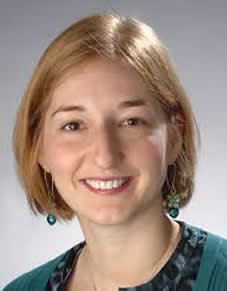Syracuse Physicist Earns Cottrell Scholar Award
M. Lisa Manning to use prestigious award to study cell behavior

A physicist in Syracuse University’s College of Arts and Sciences has received a major award to study the mechanics of how biological cells move in tissues. The award also supports the creation of related education initiatives, designed to benefit undergraduates.
, assistant professor of physics, is the recipient of a $75,000 Cottrell Scholar Award from the
Research Corporation for Science Advancement
, the United States’ second-oldest foundation and the first devoted wholly to science.
“We are extremely proud of Professor Manning, who brings considerable energy and depth to her research,” says A. Alan Middleton, professor and chair of physics. “She applies sophisticated theoretical methods and works with experimentalists applying state-of-the-art technologies to analyze experiments on cell migration and granular materials.”
Manning's proposed research focuses on the behavior of biological cells. Sometimes these cells behave like a liquid, rearranging themselves to move over relatively large distances. This is common during wound healing, embryonic development, and the growth of cancer tumors.
Other times, these cells organize themselves like a solid, such as when they form a protective layer or support the weight of a body part.
Manning says such behavior also occurs in non-biological materials, such as so-called “jamming” transitions, where a material becomes more rigid as its density increases, and “glass” transitions, in which viscous, lava-like materials harden during the cooling process."
“When tissues are close to one of these transitions, small changes affecting single-cell properties can alter the mechanical response of the tissue,” says Manning, a recent recipient of the Alfred P. Sloan Foundation Fellowship and National Science Foundation CAREER Award.
Manning and her students will study groups of cancer cells, trying to infer how single-cell mechanical properties predict tumor organization and large-scale mechanical responses. They also will investigate how structures, such as the cytoskeleton, reorganize themselves to influence large-scale properties of dense cell masses.
Manning's ultimate goal is to devise a theoretical framework for describing how cells control “jamming” transitions in tissues.
“There are no guarantees with this kind of research, but I hope it will help me and my collaborators identify new avenues for healing tissues and preventing disease,” she adds.
The Cottrell Scholar Award also recognizes excellence in teaching and academic leadership. As part of the education component of her award, Manning will develop an online assessment tool for use in introductory physics courses, as well as biophysics modules to help explain cutting-edge research. She also will create a course that trains graduate students and undergraduate peer-coaches to better assist students in these introductory courses.
